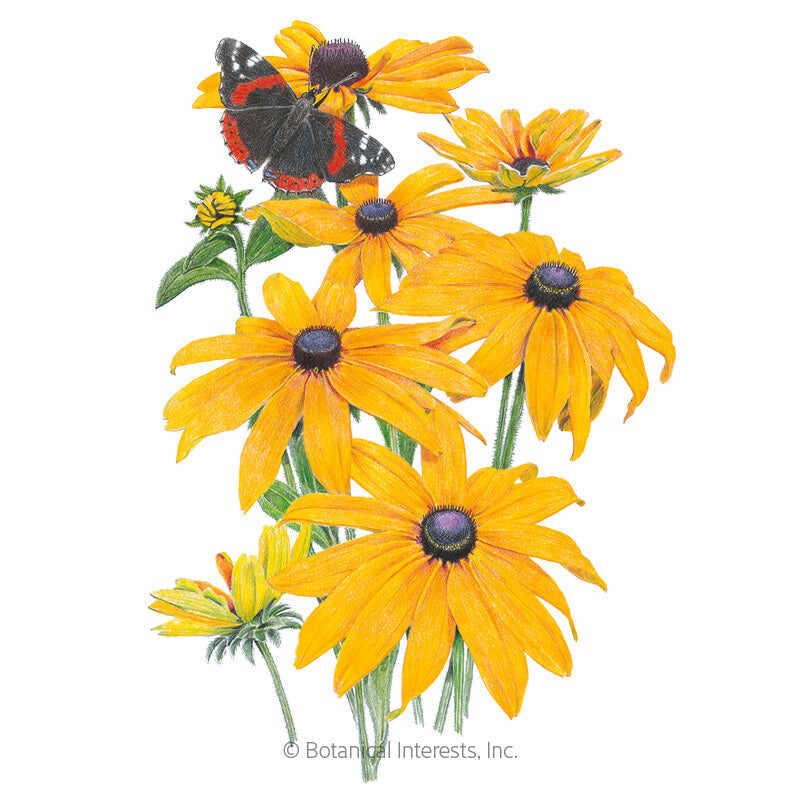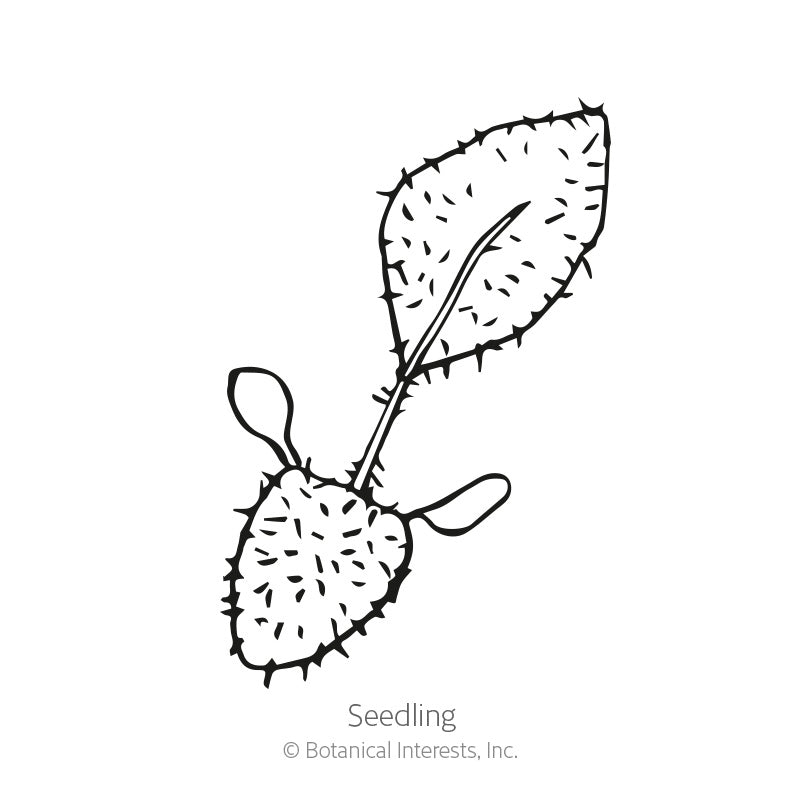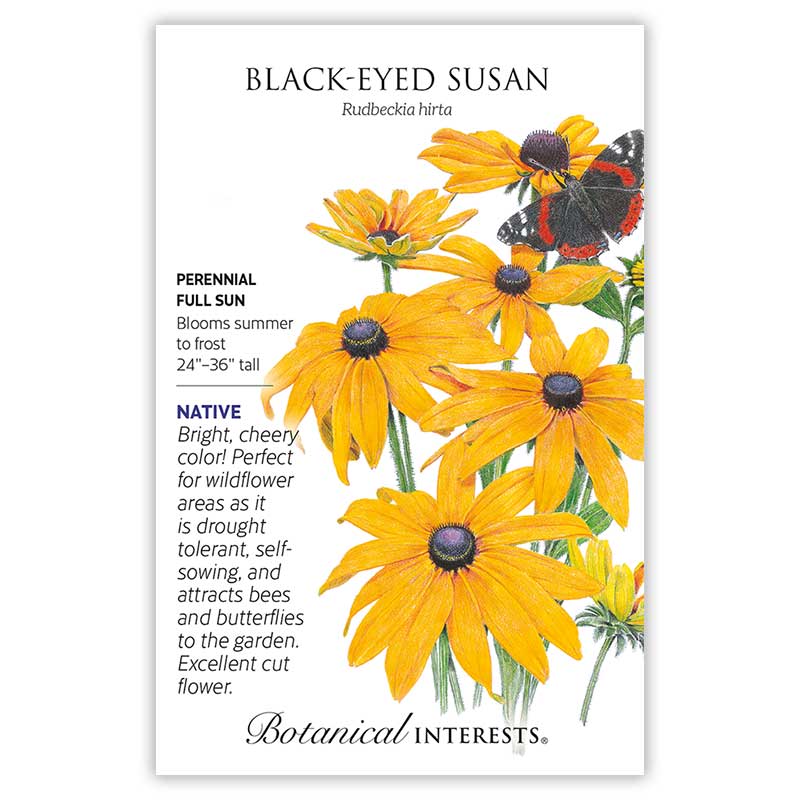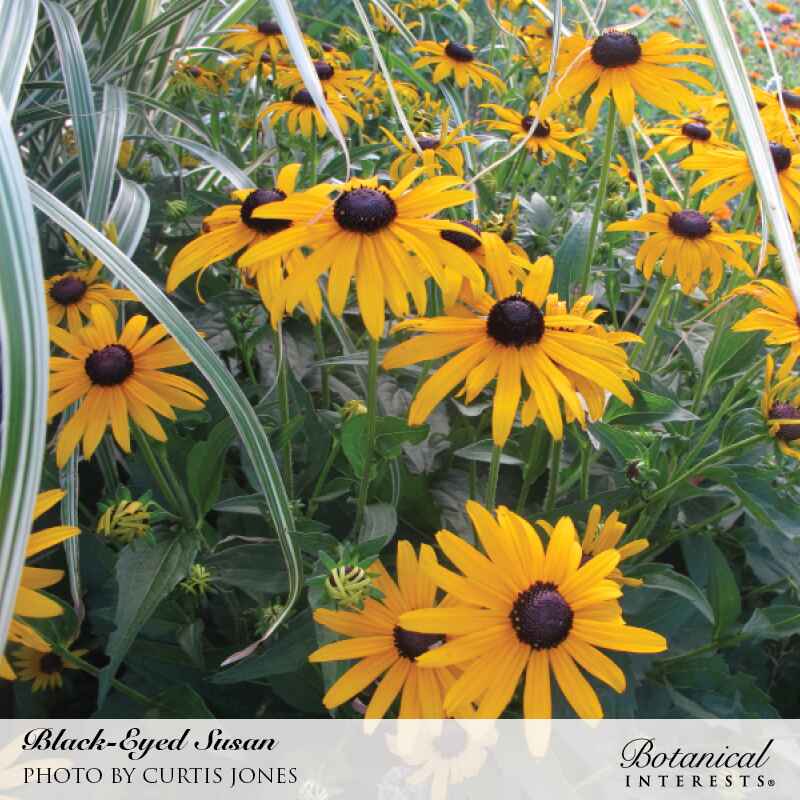

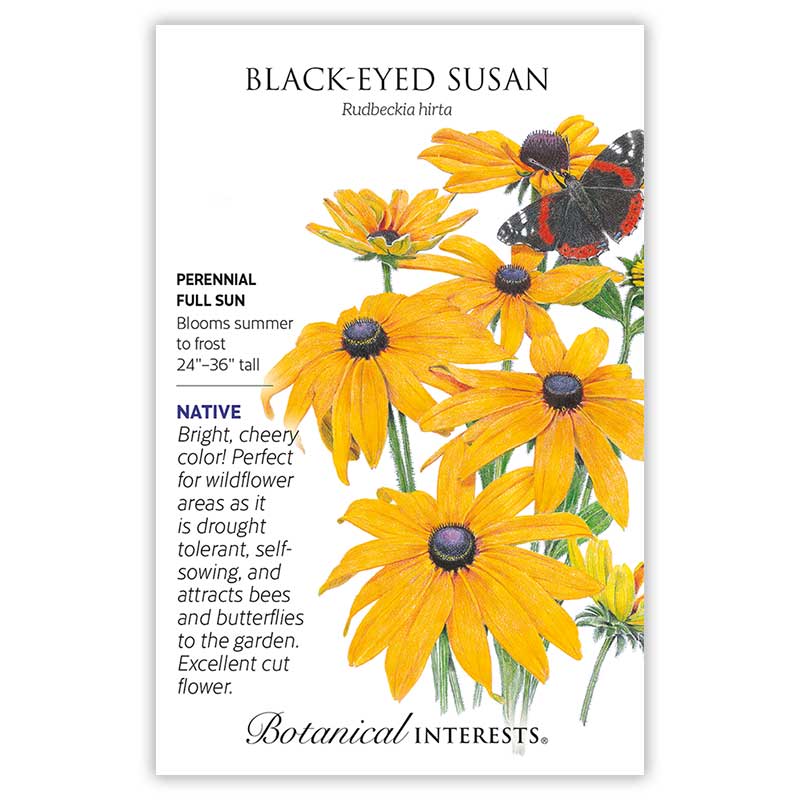
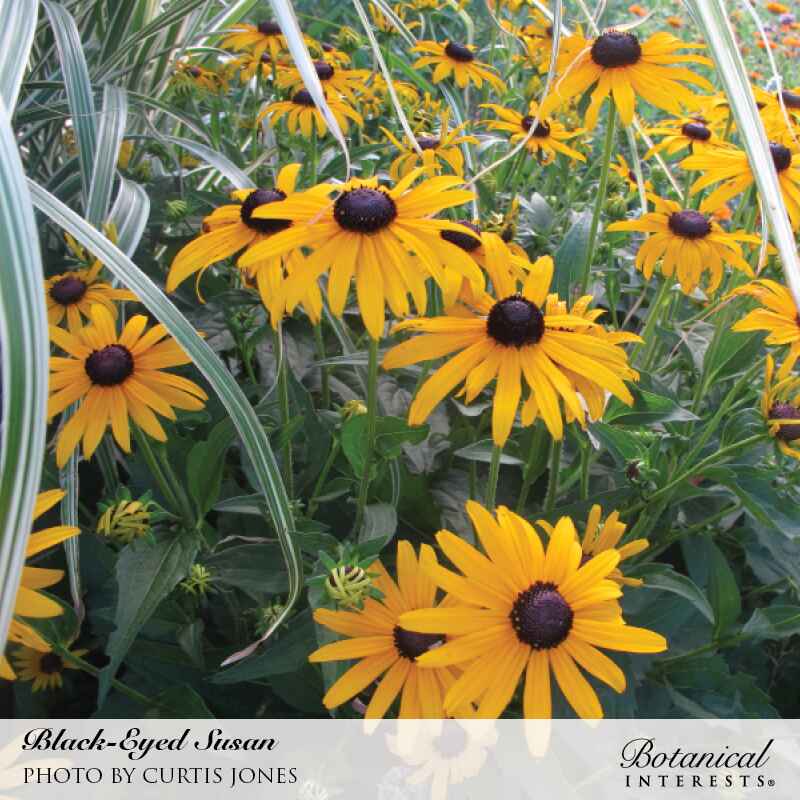
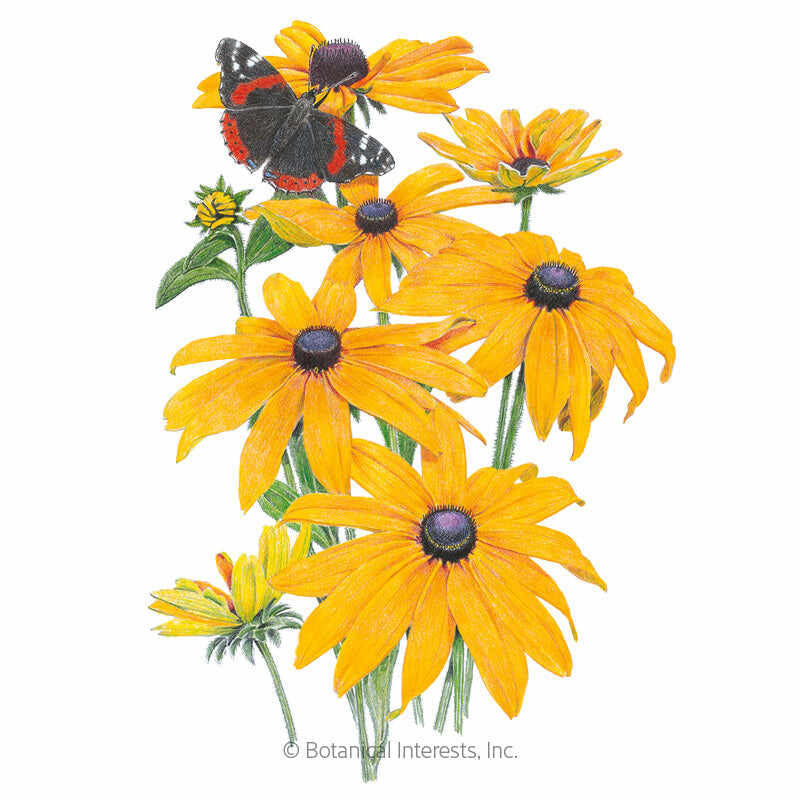
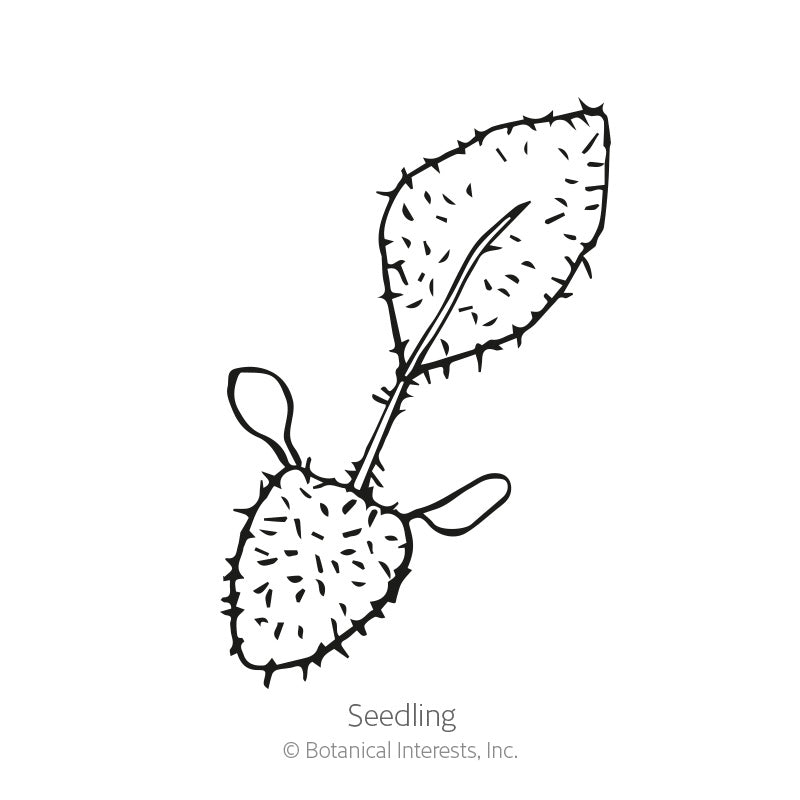
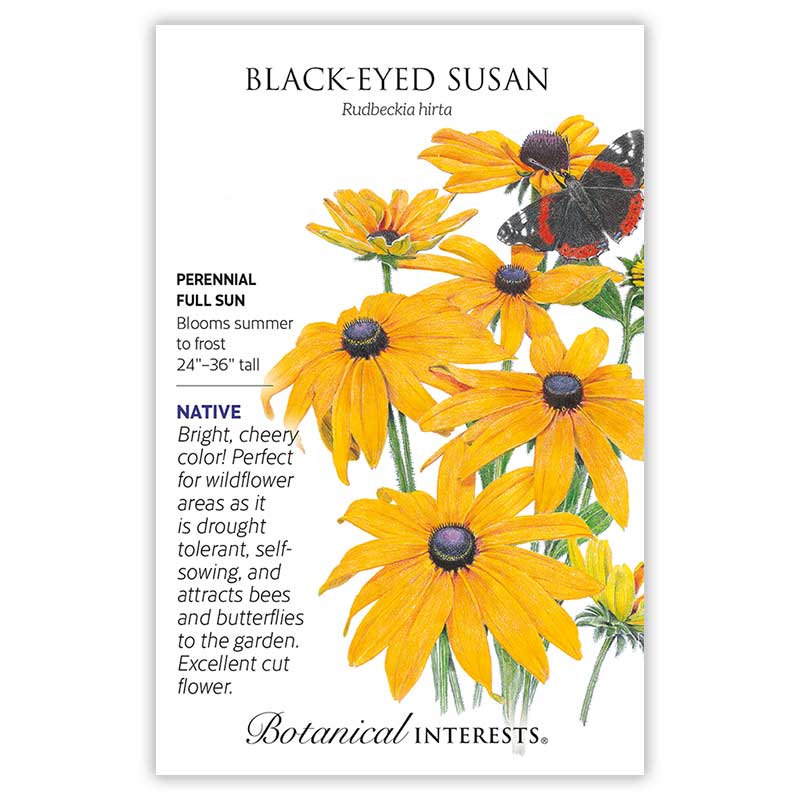
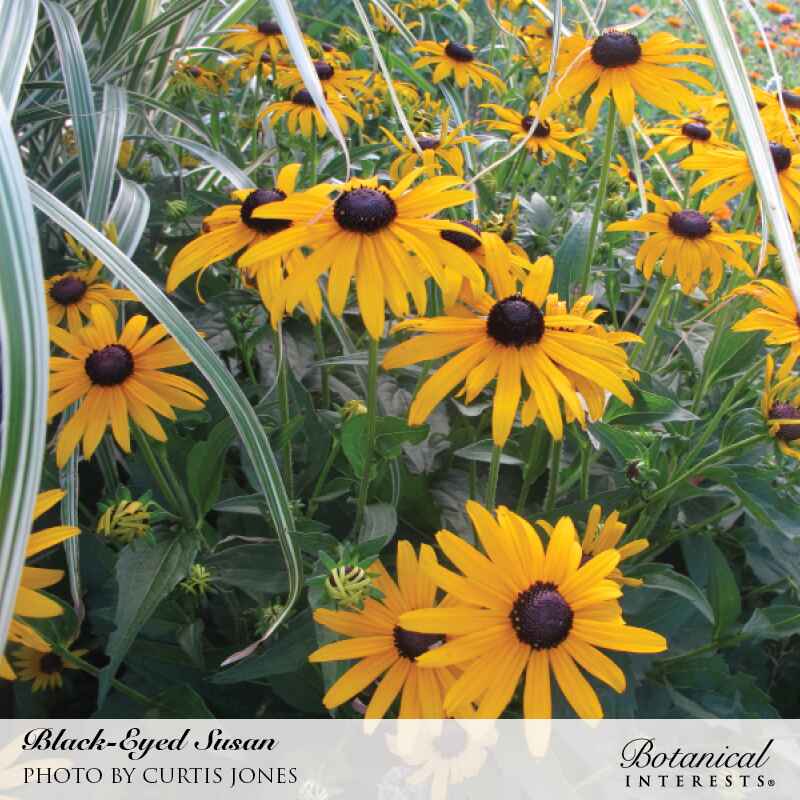
- Variety Info
- Sowing Info
- Growing Info
- Learn More
Variety Info
Family: Asteraceae
Native: North America prairies
Hardiness: Short-lived perennial in USDA zones 3–7, but usually treated as an annual, because it does not reliably come back year after year. May self-sow.
Exposure: Full sun
Bloom Period: Summer to frost
Plant Dimensions: 24"–36" tall, 12"–24" wide
Variety Info: 2"–4" wide, yellow flowers with a purplish-brown center.
Attributes: Attracts Butterflies, Attracts Pollinators, Cut Flower, Deer Resistant
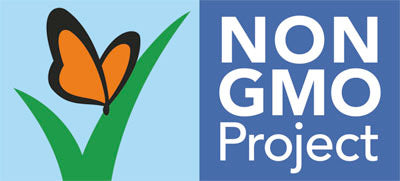
Sowing Info
When to Sow Outside: 2 to 4 weeks before your average last frost date, and as late as 2 months before your average first fall frost date.
When to Start Inside: 8 to 10 weeks before your average last frost date. If started inside early enough, may bloom the first year.
Days to Emerge: 10–15 days
Seed Depth: Press into surface
Seed Spacing: A group of 3 seeds every 12"–24"
Thinning: When 1"– 2" tall, thin to 1 every 12"–24"
Your hardiness zone is
Growing Info
Harvesting: For longest vase life, harvest flowers in the morning, choosing those that have just unfurled all their petals.






